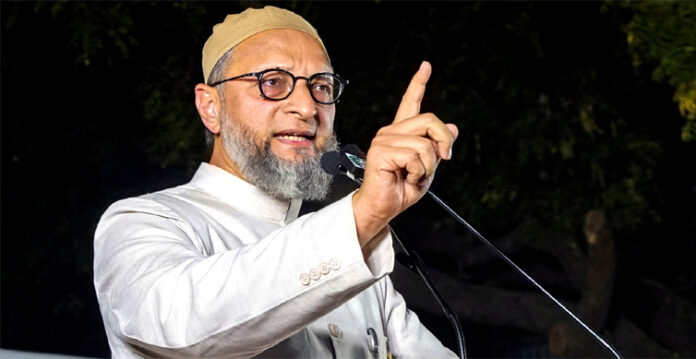A recent survey of the Shah Mosque in Sambhal, Uttar Pradesh, has sparked a major controversy after claims emerged that the mosque was originally a Hindu temple. Following this, a legal battle has erupted over the Dargah of Khwaja Moinuddin Chishti in Ajmer, Rajasthan, with the Hindu side petitioning the court to declare the shrine a Hindu temple.
In response to the developments, Asaduddin Owaisi, the President of the All India Majlis-e-Ittehad-ul-Muslimeen (AIMIM), strongly criticized the attempts to alter the religious identity of places of worship and called on the courts to enforce the 1991 Places of Worship Act.
Owaisi stated that it is the legal duty of the courts to implement the 1991 Act, which explicitly prohibits the changing of a religious site’s identity. He condemned the ongoing actions of Hindutva organizations, accusing them of violating the law and Constitution to pursue their agenda. Owaisi further expressed concern over Prime Minister Narendra Modi’s silence in the matter, saying that the Prime Minister is passively observing the situation unfold.
Also Read: Controversy Over Shiv Temple Claim at Ajmer Dargah, Court to Hear Case on December 20
In his social media post, Owaisi emphasized that the teachings of Khwaja Moinuddin Chishti, the revered Sufi saint of Ajmer, have been followed by millions of people for centuries. He added that despite the passage of time and changes in rulers, the Ajmer Dargah remains a symbol of peace and devotion, unshaken by these divisive claims. “People have followed the path of Khwaja Ajmeri for centuries, and they will continue to do so, In sha Allah,” Owaisi wrote.
He also reiterated his criticism of the Hindutva agenda, saying that the law should be enforced to prevent further attempts to disrupt religious harmony. Owaisi argued that these actions were damaging to the faith of millions and aimed at dividing society.
The petition related to the Ajmer Dargah case was heard in court on Wednesday, where the Hindu party argued that the Dargah should be recognized as a Hindu temple. The court has issued notices to all concerned parties, and the next hearing is set for December 20.
Owaisi’s comments come amid heightened tensions surrounding religious sites in India, with similar claims being made about other places of worship across the country. The 1991 law, which bars any legal action that seeks to change the religious identity of a place of worship, remains central to the ongoing debate.
(This story is sourced from a third-party syndicated feed. Raavi Media takes no responsibility or liability of any nature. Raavi Media management/ythisnews.com can alter or delete the content without notice for any reason.)


